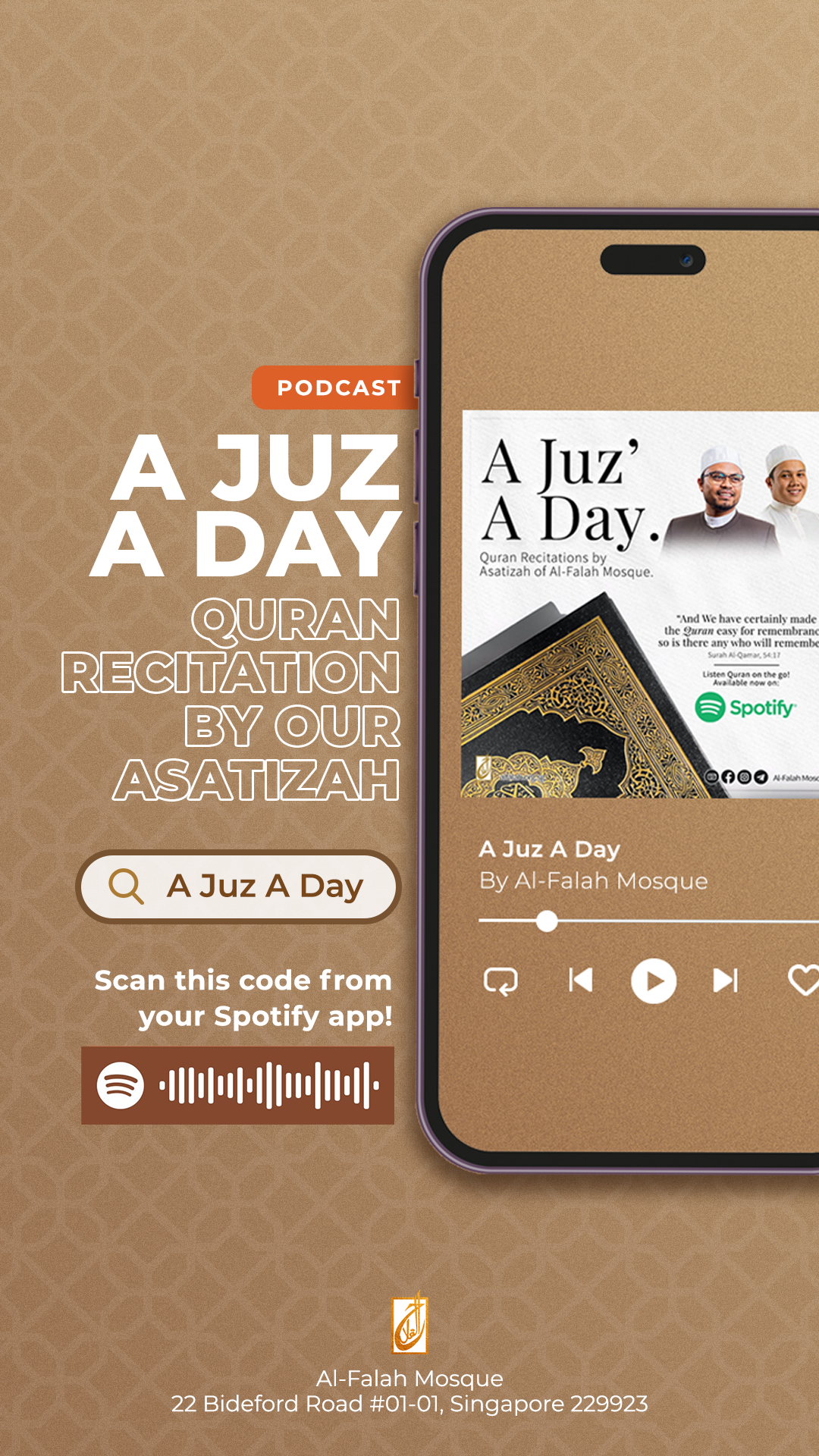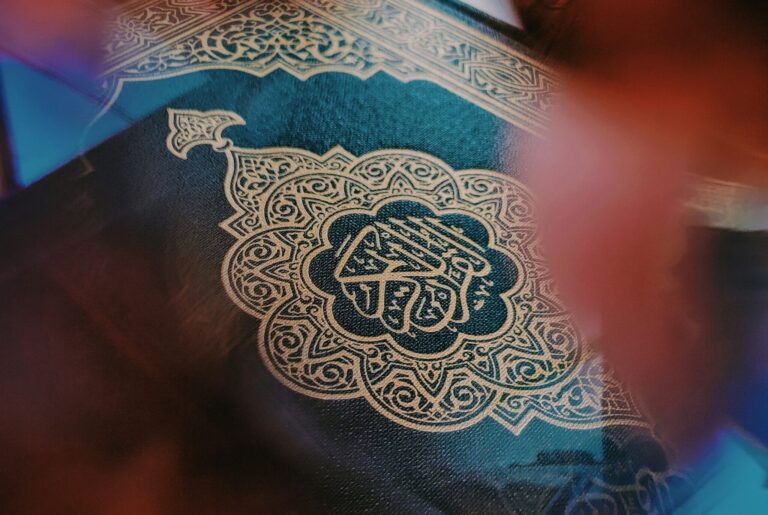Articles
The Fit Muslim: Strength, Discipline & Faith

Islam is a holistic religion that advocates for us to take care of our mental, spiritual and physical health. Our bodies are an amanah (responsibility) entrusted to us by Allah s.w.t and we should take good care of it. Physical health is key to a balanced lifestyle, enhancing both mental clarity and spiritual well-being. While these aspects are closely intertwined, as Muslims, we often place greater focus on our spiritual health, sometimes overlooking the importance of our physical well-being. Islam teaches us the importance of strength and vigour, as it is beloved to Allah s.w.t, as mentioned in the hadith:
وَعَنْ أَبِي هُرَيْرَةَ - رضى الله عنه - قَالَ: قَالَ رَسُولُ اَللَّهِ - صلى الله عليه وسلم:
اَلْمُؤْمِنُ اَلْقَوِيُّ خَيْرٌ وَأَحَبُّ إِلَى اَللَّهِ مِنْ اَلْمُؤْمِنِ اَلضَّعِيفِ…
Abu Hurairah r.a narrates that the prophet s.a.w said: “A strong believer is better and beloved to Allah than a weak believer…”
Imam Al-Qurtubi explains that the word قوي (strong) here refers to being strong in body and soul, which helps enable one to perform acts of worship. This reflects the idea of resilience and strength developed from the body and mind. Physical fitness aids us in our ability to endure hardships and also face the challenges in life that are afflicted upon us.
Being strong physically aids us in consistently devoting our worship towards Allah s.w.t such as in our daily prayers. Performing the 5 daily prayers requires physical movements such as standing and prostrating. Physical fitness aids us in performing our acts of worship with ease and concentration. The Prophet s.a.w would stand in night prayers until his feet would swell, demonstrating his immense spiritual and physical devotion.
عن عائشة رضي الله عنها، قالت: كان النبي صلى الله عليه وسلم ، يقوم من الليل حتى تتفطر قدماه، فقلت له: لم تصنع هذا يا رسول الله، وقد غفر لك ما تقدم من ذنبك وما تأخر؟ قال: “أفلا أكون عبدًا شكورًا”.
(متفق عليه)
Aishah radiyyallahu anha reported:
The Prophet s.a.w kept standing (in prayer) so long that the skin of his feet would crack. I asked him: “Why do you do this, while you have been forgiven of your past and future sins?” He said, “Should I not be a grateful servant of Allah?
(Muttafaqun Alaih)
The Hajj pilgrimage as well requires significant physical stamina and endurance due to extensive travel amidst crowded conditions, all of which demand immense patience. Throughout this journey, steadfast faith in Allah s.w.t as well serves as a guiding strength.
Our Prophetic guidance is the most excellent form of guidance. It is unparalleled in its approach to nurture the heart and body, ensuring their well-being, and protecting them from harm, leading us towards a life of peace, purpose, and righteousness.
Physique of the Prophet s.a.w
The Prophet s.a.w is our role model in all aspects towards our religion. Not only was he sent down to provide us rulings of what is halal and haram but also as a role model in every aspect of our lives. The Prophet s.a.w was someone who took good care of his body and health. Imam At-Tirmidzi brings various descriptions on the physique of the Prophet s.a.w in his book “Syama’il Muhammadiyah”:
:عَنْ عُمَرَ بْنِ عَبْدِ اللهِ مَوْلَى غُفْرَةَ، قَالَ: حَدَّثَنِي إِبْرَاهِيمُ بْنُ مُحَمَّدٍ مِنْ وَلَدِ عَلِيِّ بْنِ أَبِي طَالِبٍ، قَالَ: كَانَ عَلِيٌّ إِذَا وَصَفَ رَسُولَ اللهِ صلى الله عليه وسلم، قَالَ
“…وَلَمْ يَكُنْ بِالْمُطَهَّمِ، وَلا بِالْمُكَلْثَمِ، وَكَانَ فِي وَجْهِهِ تَدْوِيرٌ…”
On the authority of ‘Umar ibn ‘Abdi’llah, the Mawla of Ghufra:
I have been told by Ibrahim ibn Muhammad, one of the offspring of ‘Ali ibn Abi Talib (may Allah be well pleased with him): “When ‘Ali described Allah’s Messenger (Allah bless him and give him peace),he said: … “He was neither plump nor chubby-cheeked, and in his face there was a rounded quality…”
سَمِعْتُ الْبَرَاءَ بْنَ عَازِبٍ يَقُولُ : كَانَ رَسُولُ اللهِ – صَلَّى اللهُ عَلَيْهِ وَسَلَّمَ – رَجُلًا مَرْبُوعًا ، بَعِيدَ مَا بَيْنَ الْمَنْكِبَيْنِ ، عَظِيمَ الْجُمَّةِ إِلَى شَحْمَةِ أُذُنَيْهِ ، عَلَيْهِ حُلَّةٌ حَمْرَاءُ ، مَا رَأَيْتُ شَيْئًا قَطُّ أَحْسَنَ مِنْهُ
I heard al-Bara’ ibn ‘Azib say: “Allah’s Messenger s.a.w was neither curly nor lank-haired, of medium height, broad-shouldered, with luxuriant hair reaching the lobes of his ears, wearing a red suit of clothes. I have never seen anything more beautiful than him
These physical attributes of the Prophet s.a.w shows how fit he was. His physique was well proportioned which indicates that it was harmonious and balanced. His chest and stomach were proportionate indicating his overall fitness. His wide chest and broad shoulders suggest that he had a well-developed chest and shoulder muscles. This also indicates that he had a good posture which highlights his physical condition and endurance. Attaining such physique typically results from regular physical activity and exercise.
If we ask athletes and fitness professionals about the key components of a healthy lifestyle, three crucial factors consistently emerge in their answers: sleep, diet, and exercise. Universally recognized as foundational pillars contributing significantly to overall well-being and physical fitness, these principles were already taught and practiced by our role model, Prophet Muhammad s.a.w.
Sleep and Mornings
We often idolise well-disciplined athletes such as Cristiano Ronaldo, Kobe Bryant, Khabib Nurmagamedov, to which they would say in their various interviews that they would wake up early in the morning to train. This lifestyle had actually already been preceded by our Prophet s.a.w.
Ibn Qayyim mentions there are two key benefits to sleep. The first is that it calms and rest the body from the tiredness it feels, which then allows the senses to relax which then takes away exhaustion and fatigue. The second benefit is that during sleep, the body’s natural heat goes deeper, helping with digestion and the processing of bodily fluids. This then causes the body to cool down, which is why a person needs a blanket to stay warm.
It is well known in the fitness industry that sleep and rest is one of the most important factors in one’s health. It is in the early mornings that bring us both spiritual and health benefits. Those who sleep early and wake up early in the morning will gain the fruits of what is offered by Allah s.w.t during that time. If we wake up each day blessed with good health, we should never take it for granted, as it is truly a blessing from Allah s.w.t. The Prophet Muhammad s.a.w reminds us of the immense value of such blessings in a powerful hadith:
عَنْ سَلَمَةَ بْنِ عُبَيْدِ اللَّهِ بْنِ مِحْصَنٍ الْخَطْمِيِّ عَنْ أَبِيهِ وَكَانَتْ لَهُ صُحْبَةٌ قَالَ قَالَ رَسُولُ اللَّهِ صَلَّى اللَّهُ عَلَيْهِ وَسَلَّمَ: “مَنْ أَصْبَحَ مِنْكُمْ آمِنًا فِي سِرْبِهِ مُعَافًى فِي جَسَدِهِ عِنْدَهُ قُوتُ يَوْمِهِ فَكَأَنَّمَا حِيزَتْ لَهُ الدُّنْيَا”
On the authority of Salamah ibn Ubaydillah ibn Mihsan al-Khatmi, who reported from his father, and he had companionship with the Prophet (peace be upon him), who said: ‘Whoever wakes up among you safe in his home, healthy in his body, and has enough food for the day, it is as if the world has been gathered for him.’
Ask any successful person their secret, and many will tell you they wake up early, seizing the quiet hours before dawn to outperform their competition. This strategy allows them to focus deeply on their goals without distractions as the world is a much quieter place in the morning which then sets a productive tone for the day ahead.
As muslims, we have the Prophet s.a.w as a guideline where he would wake up in the final third of the night to perform his tahajjud prayers, followed by the fajr prayer at dawn, and then engage in his adzkar. He prayed for blessings to those who wake up early and benefit their mornings:
عَنْ صَخْرٍ الْغَامِدِيِّ، عَنِ النَّبِيِّ صلى الله عليه وسلم قَالَ “ اللَّهُمَّ بَارِكْ لأُمَّتِي فِي بُكُورِهَا ”
وَكَانَ إِذَا بَعَثَ سَرِيَّةً أَوْ جَيْشًا بَعَثَهُمْ فِي أَوَّلِ النَّهَارِ . وَكَانَ صَخْرٌ رَجُلاً تَاجِرًا وَكَانَ يَبْعَثُ تِجَارَتَهُ مِنْ أَوَّلِ النَّهَارِ فَأَثْرَى وَكَثُرَ مَالُهُ
Narrated by Sakhr Al-Ghamidi: The Prophet s.a.w said: “O Allah, bless my people in their early mornings.” When he sent out a detachment or an army, he sent them at the beginning of the day. Sakhr was a merchant, and he would send off his merchandise at the beginning of the day; and he became rich and had much wealth.
The blessings mentioned does not only mean blessings in money and sustenance but it can also be in knowledge, health and so much more. Ibn Abbas r.a once saw his son sleeping in the early hours of the morning and said to him:
“قُمْ، أَتَنَامُ فِي السَّاعَةِ الَّتِي تُقَسَّمُ فِيهَا الْأَرْزَاقُ؟”
‘Get up! Do you sleep during the hour when provisions are being distributed?’
It is not from the recommended acts of our Prophet s.a.w to sleep after fajr prayers as it is highly encouraged, for us muslims, to engage in remembrance (zikr) and activities that benefit both spiritually and physically. Early mornings are particularly conducive to reaping these dual benefits. Following our morning adhkar, we can establish a routine of physical exercise such as taking a leisurely walk in the neighbourhood or working out in the gym to enhance our overall well-being.
Ibn Qayyim mentions in his book Zaadul Ma’ad:
مَنْ تَدَبَّرَ نَوْمَهُ وَيَقَظَتَهُ – صَلَّى اللَّهُ عَلَيْهِ وَسَلَّمَ – وَجَدَهُ أَعْدَلَ نَوْمٍ، وَأَنْفَعَهُ لِلْبَدَنِ وَالْأَعْضَاءِ وَالْقُوَى، فَإِنَّهُ كَانَ يَنَامُ أَوَّلَ اللَّيْلِ، وَيَسْتَيْقِظُ فِي أَوَّلِ النِّصْفِ الثَّانِي، فَيَقُومُ وَيَسْتَاكُ، وَيَتَوَضَّأُ وَيُصَلِّي مَا كَتَبَ اللَّهُ لَهُ، فَيَأْخُذُ الْبَدَنُ وَالْأَعْضَاءُ، وَالْقُوَى حَظَّهَا مِنَ النَّوْمِ وَالرَّاحَةِ، وَحَظَّهَا مِنَ الرِّيَاضَةِ مَعَ وُفُورِ الْأَجْرِ، وَهَذَا غَايَةُ صَلَاحِ الْقَلْبِ وَالْبَدَنِ، وَالدُّنْيَا وَالْآخِرَةِ
“Whoever manages his sleep and wakefulness—may Allah’s peace and blessings be upon him—finds it the most balanced sleep and most beneficial for the body, organs, and strength. He (The Prophet s.a.w) used to sleep early in the night and awaken in its later half, then rise and cleanse himself, perform ablution, and pray what Allah had decreed for him. Thus, his body, organs, and strength receive their share of rest and relaxation, and their share of exercise with abundant reward. This is the ultimate in rectifying the heart and body, in both this world and the Hereafter.”
Although there is nothing wrong with sleeping after Fajr, it was the practice of the Prophet s.a.w, his companions and our pious predecessors not to do so as it is a time of barakah (blessings). Even if it is permissible to spend the night in one’s affairs and to sleep after Fajr, it is advisable to try to sleep early and tend to those affairs after Fajr, as it is a time of blessings and can better help us in our daily routines and concentration.
Sports and Exercise
Exercise is a key factor in maintaining one’s health. There are many effective ways for one to exercise from swimming and running to going to the gym or playing high-intensity sports such as football, basketball, and many more. According to studies, exercise helps lower one’s blood pressure, boost levels of good cholesterol, improve blood flow circulation and keep our weight under control. This healthy lifestyle of sports and exercise is in accordance with the sunnah of the Prophet s.a.w as mentioned by Umar r.a:
عَنْ أَبِي أُمَامَةَ بْنِ سَهْلٍ، قَالَ كَتَبَ عُمَرُ رَضِيَ اللَّهُ عَنْهُ إِلَى أَبِي عُبَيْدَةَ بْنِ الْجَرَّاحِ أَنْ عَلِّمُوا غِلْمَانَكُمْ الْعَوْمَ
وَمُقَاتِلَتَكُمْ الرَّمْيَ فَكَانُوا يَخْتَلِفُونَ إِلَى الْأَغْرَاضِ…
It was narrated that Abi Umamah said: “Umar wrote to Abu Ubaidah bin al-Jarrah [saying]: Teach your children swimming and teach your fighters archery…”
Umar r.a advocated for his companions to engage in various exercises such as swimming and archery. Swimming, in particular, is an excellent way to build stamina and endurance, as it works the entire body and engages multiple muscle groups simultaneously. It is also an effective way to improve cardiovascular health, increase flexibility, and even help with weight loss. Not only that, swimmers are often known for having some of the best levels of fitness, as their training builds not only physical strength but also mental resilience, making them some of the most well-conditioned athletes in the world.
The Prophet s.a.w was also known to enjoy sprinting. He loved to engage in friendly races with his wife, Aisha r.a, showing his playful and competitive side. These races were not just about winning, but about fostering a loving and joyful relationship, while also demonstrating his physical abilities.
عَنْ عَائِشَةَ، رَضِيَ اللَّهُ عَنْهَا أَنَّهَا كَانَتْ مَعَ النَّبِيِّ صلى الله عليه وسلم فِي سَفَرٍ قَالَتْ فَسَابَقْتُهُ فَسَبَقْتُهُ عَلَى رِجْلَىَّ فَلَمَّا حَمَلْتُ اللَّحْمَ سَابَقْتُهُ فَسَبَقَنِي فَقَالَ “ هَذِهِ بِتِلْكَ السَّبْقَةِ ”
Aisha (may Allah be pleased with her) said that she was traveling with the Prophet s.a.w. She raced him and beat him when she was running on foot. Later, when she was carrying some meat, she raced him again, but this time he beat her. He then said, “This is for the race you won earlier.
There are many other sports which were also practiced by our Prophet s.a.w and his companions such as walking, camel and horse riding, grappling, fencing, spear throwing and many more.
Ibn Jawzi illustrates our body as a riding camel. If we are not gentle and attentive to it, it will not carry us to our intended destination. Our body serves as a vehicle that transports us through time as we age where neglecting its care will prevent us from reaching our destination safely. Without engaging in regular exercise, our body will gradually lose its strength, stamina and ability to function properly, which may lead to laziness in our worship to Allah s.w.t.
From the various hadiths and commentaries from our scholars, we can derive that exercising and sports are part of the sunnah of the Prophet Muhammad s.a.w and were also practised by our Islamic scholars. Imam As-Suyuti even authored several small works focused on sports, specifically on swimming, archery, and grappling, such as “Al-Bahah fi Fadl As-Sibahah”, “As-Simaah fi Akhbaar ar-Rimaah”, and “Al-Musar’ah ila al-Musar’ah”.
Diet
If one believes that exercising is the most crucial aspect of staying fit and healthy, they are mistaken. In reality, diet plays a far more significant role. While exercise is beneficial for physical fitness, a nutritious diet not only supports weight management but also provides essential nutrients that promote overall health and well-being. Therefore, prioritising a balanced and healthy diet is paramount for maintaining optimal health, alongside incorporating regular physical activity.
The Prophet s.a.w advised us to be moderate in our intake of foods and drinks. Imam Al-Qurtubi mentions in his Tafsir:
“It is said: There are many benefits to eating less, including that a person will be healthier, have better memory, clearer understanding, sleep less, and have a lighter spirit. On the other hand, excessive eating leads to overloading the stomach, unpleasant indigestion, and the development of various diseases, requiring more treatment than is needed by someone who eats little. Some wise men said:
“The best medicine is to measure your food intake.”
The Prophet s.a.w explained this concept clearly, when he said:
عَنْ مِقْدَامِ بْنِ مَعْدِي كَرِبَ، قَالَ سَمِعْتُ رَسُولَ اللَّهِ صلى الله عليه وسلم يَقُولُ “ مَا مَلأَ آدَمِيٌّ وِعَاءً شَرًّا مِنْ بَطْنٍ بِحَسْبِ ابْنِ آدَمَ أُكُلاَتٌ يُقِمْنَ صُلْبَهُ فَإِنْ كَانَ لاَ مَحَالَةَ فَثُلُثٌ لِطَعَامِهِ وَثُلُثٌ لِشَرَابِهِ وَثُلُثٌ لِنَفَسِهِ
“‘The human does not fill any container that is worse than his stomach. It is sufficient for the son of Adam to eat what will support his back. If this is not possible, then a third for food, a third for drink, and third for his breath.”
There has to be wisdom why the Prophet s.a.w gave us a guideline on being moderate in our intake of food and drinks. Imam As-Sindi explains in his explanation of Sunan Ibn Majah that the stomach is usually one of the main causes of sickness. It prevents oneself from being obedient to Allah s.w.t in their acts of worship and also leads to ineffectiveness and sin. Ibn Qayyim mentioned in his book, “The Prophetic Medicine” (at-Tibb an-Nabawi), that the past scholars of medicine said:
“قال بعض المتقدمين من أئمة الطب: من أراد عافية الجسم فليقلل من الطعام والشراب, ومن أراد عافية القلب فليترك الآثام”
“Whoever wants physical health should reduce their intake of food and drink, and whoever wants the well-being of the heart should abandon sins”
Ibn Jawzi mentioned that he used to read five juz of the Qur’an everyday. One day he ate some bad food which made him unable to read those five juz. He then said:
“إن لقمة تؤثر قراءة خمسة أجزاء بكل حرف عشر حسنات؛ إن تناولها لطاعة عظيمة! وإن مطعما يؤذي البدن فيفوته فعل خير ينبغي أن يهجر!”
“Indeed, a single bite which affects one’s reading of five Juz, with every letter bringing ten rewards; its consumption is a great act of obedience! And indeed, a meal that harms the body and prevents the act of goodness should be avoided!”
A healthy diet plays an important role in health and disease prevention. There have been many diseases and illnesses such as high cholesterol, diabetes, obesity, which come from an unhealthy diet. When one does not control their intake, there is the feeling of lethargicness that may lead to lacking in diligence in their ibadah. Allah s.w.t mentions in the Qur’an:
يَٰبَنِيٓ ءَادَمَ خُذُواْ زِينَتَكُمۡ عِندَ كُلِّ مَسۡجِدٖ وَكُلُواْ وَٱشۡرَبُواْ وَلَا تُسۡرِفُوٓاْۚ إِنَّهُۥ لَا يُحِبُّ ٱلۡمُسۡرِفِينَ
“O children of Adam, take your adornment at every masjid, and eat and drink, but be not excessive. Indeed, He likes not those who commit excess.”
Ibn Katsir mentioned when interpreting this verse that some of the pious predecessors (Salaf as-Salih) said: “Allah has summarised all of medicine in half a verse: “and eat and drink, but do not be excessive”.
We should always prioritise foods that promote our health and safeguard us from illness. A balanced and moderate diet is essential for those on this journey. Extreme or overly restrictive diets can negatively affect both our physical and mental well-being, so moderation is key. Ibn Jawzi said:
“Do not think that I recommend eating everything that is desired or pleasurable. Eat what preserves the soul and forbid eating what harms the body. As for excessive eating, it causes sleep, and a full stomach which blinds the heart and weakens the body. For verily, moderation is the way.
This concept of moderation is beautifully reflected in the guidance provided in the Qur’an. Allah s.w.t mentions in the Qur’an:
يَـٰٓأَيُّهَا ٱلنَّاسُ كُلُواْ مِمَّا فِي ٱلۡأَرۡضِ حَلَٰلٗا طَيِّبٗا
“O mankind, eat from whatever is on earth [that is] lawful and good”
In his Tafsir, Ibn Aasyur explained that the word “Tayyib” (good) here refers to what can be perceived by sound and upright perception—free from abnormalities.This refers to the souls that desire what is perfect or preferable fit, in a way that does not result to physical or spiritual harm when consumed. The Qur’an provides us with clear guidance on consuming what is beneficial and not harmful for the body and soul. This is a precious gift bestowed upon us by Allah s.w.t.
Water
We often hear advice from those in the fitness industry about drinking lots of water every day for hydration. While it may seem simple, it stands as one of the most effective practices in maintaining a healthy diet. In an era full of unhealthy and sugary beverages, we sometimes indulge ourselves in these types of beverages instead of water.
In the book “The Prophetic Medicine,” Ibn Qayyim emphasises the significance of water, stating: “Water is the essence of life, the finest beverage, and a fundamental pillar of existence. It is indeed the cornerstone of life, given that Allah has created every living creature from water.”
Allah s.w.t mentions in the Qur’an:
أَوَلَمۡ يَرَ ٱلَّذِينَ كَفَرُوٓاْ أَنَّ ٱلسَّمَٰوَٰتِ وَٱلۡأَرۡضَ كَانَتَا رَتۡقٗا فَفَتَقۡنَٰهُمَاۖ وَجَعَلۡنَا مِنَ ٱلۡمَآءِ كُلَّ شَيۡءٍ حَيٍّۚ أَفَلَا يُؤۡمِنُونَ
“Have those who disbelieved not considered that the heavens and the earth were a joined entity, and We separated them and made from water every living thing? Then will they not believe?”
Imam Ibn Katsir mentions in his tafsir that the origin of all living beings are from water. Similarly, Imam Al-Baghawi and some of the Mufassirun also mentioned the same thing where they interpreted that this means that every living being is created from water as mentioned by Allah s.w.t:
وَٱللَّهُ خَلَقَ كُلَّ دَآبَّةٖ مِّن مَّآءٖۖ فَمِنۡهُم مَّن يَمۡشِي عَلَىٰ بَطۡنِهِۦ وَمِنۡهُم مَّن يَمۡشِي عَلَىٰ رِجۡلَيۡنِ وَمِنۡهُم مَّن يَمۡشِي عَلَىٰٓ أَرۡبَعٖۚ يَخۡلُقُ ٱللَّهُ مَا يَشَآءُۚ إِنَّ ٱللَّهَ عَلَىٰ كُلِّ شَيۡءٖ قَدِيرٞ
“Allah has created every [living] creature from water. And of them are those that move on their bellies, and of them are those that walk on two legs, and of them are those that walk on four. Allah creates what He wills. Indeed, Allah is over all things competent.”
Before scientists discover that our body is made up out of almost 60% water, Allah s.w.t has revealed too us this information in the Qur’an. These verses highlight the creation of every living thing from water, emphasising the essential nature of water for life. Water is vital to our health as it plays a role in many of the body’s functions. It helps maximise our physical performance, keep us hydrated, lose weight and also aid us in digestion and fighting certain medical complications.
Another Prophetic act that we can apply into our daily lives to maintain physically healthy is through fasting. Before the emergence of fitness terms such as “Intermittent Fasting” and “Alternate day fasting”, our religion has taught this act in various Qur’anic verses and hadiths. It is a shield from many illnesses of the heart, body and soul. During the fast, our body gets rid of the harmful foreign substances in the body. It has many health benefits that aids us in healthy detoxification, weight loss and reduced blood sugar. We can incorporate this practice from the Sunnah into our daily lives by fasting on recommended days such as on Mondays, Thursdays, the white days (Ayyamul Bidh), and any other form of voluntary fasting.
In the end, we will be asked by Allah s.w.t on our responsibility on how we treat our body, which is a blessing that he has bestowed upon us. Allah s.w.t mentions in the Qur’an:
ثُمَّ لَتُسۡـَٔلُنَّ يَوۡمَئِذٍ عَنِ ٱلنَّعِيمِ
“Then you will surely be asked that Day about pleasure.”
Imam Ibn Katsir explained this verse by stating that we will be asked on the day of judgement about the gratitude for what Allah has bestowed upon us, such as health, security, sustenance and blessings.
Imam At-Tabari then brings a narration regarding this verse in his tafsir where the sahabah, Ibn Abbas said:
وَرُوِيَ عَنِ ابْنِ عَبَّاسٍ قَالَ: النَّعِيمُ: صِحَّةُ الْأَبْدَانِ وَالْأَسْمَاعِ وَالْأَبْصَارِ، يَسْأَلُ اللَّهُ الْعَبِيدَ فِيمَ اسْتَعْمَلُوهَا؟ وَهُوَ أَعْلَمُ بِذَلِكَ مِنْهُمْ ، وَذَلِكَ قَوْلُهُ: “إِنَّ السَّمْعَ وَالْبَصَرَ وَالْفُؤَادَ كُلُّ أُولَئِكَ كان عنه مسؤلا”
It was narrated from Ibn Abbas that he said: “The blessings (النعيم) refer to the health of the bodies, the ability to hear, and the ability to see. Allah will ask the servants how they used these blessings, even though He is more knowledgeable about that than they are.” This is supported by His saying: “Indeed, the hearing, the sight, and the heart—all those will be questioned about” (17:36)
Incorporating these lifestyles and changes takes time and effort. To maintain consistency, it is important to start small, making gradual changes instead of attempting one drastic shift which would then overwhelm us and cause us to halt. Small steps with consistency and patience will then allow one to achieve their desired goal, with the will of Allah s.w.t. This is aligned with what the Prophet s.a.w has taught us:
“ عَنْ عَائِشَةَ ـ رضى الله عنها ـ أَنَّهَا قَالَتْ سُئِلَ النَّبِيُّ صلى الله عليه وسلم قَالَ أَىُّ الأَعْمَالِ أَحَبُّ إِلَى اللَّهِ أَدْوَمُهَا وَإِنْ قَلَّ”
The Prophet s.a.w was asked, “What deeds are loved most by Allah?” He said, “The most regular constant deeds even though they may be few.”
Ultimately, we ask Allah s.w.t to grant us good health, keep us in good physical and spiritual condition, and protect us from any harm. In seeking Allah’s mercy and blessings, it is vital to remember the importance of our well-being, as it impacts not only our daily lives but also our ability to fulfill our duties as believers. Health is a great blessing that all of us hope for, and without it, even the simplest tasks can become difficult. Abu Bakr al-Siddiq r.a once stood on the mimbar and wept as he recalled the words of the Prophet s.a.w. He said:
أَنَّ مُعَاذَ بْنَ رِفَاعَةَ، أَخْبَرَهُ عَنْ أَبِيهِ، قَالَ قَامَ أَبُو بَكْرٍ الصِّدِّيقُ عَلَى الْمِنْبَرِ ثُمَّ بَكَى فَقَالَ قَامَ رَسُولُ اللَّهِ صلى الله عليه وسلم عَامَ الأَوَّلِ عَلَى الْمِنْبَرِ ثُمَّ بَكَى فَقَالَ “ سَلُوا اللَّهَ الْعَفْوَ وَالْعَافِيَةَ فَإِنَّ أَحَدًا لَمْ “يُعْطَ بَعْدَ الْيَقِينِ خَيْرًا مِنَ الْعَافِيَةِ
Mu’az ibn Rifa’ah narrated from his father, that he said: “Abu Bakr stood upon the Minbar, then wept, and said: ‘The Messenger of Allah (ﷺ) stood upon the Minbar the first year (of Hijrah), then wept, and said: “Ask Allah for forgiveness and good health, for verily, none has been given anything better than good health.’”
Let us, therefore, continually make dua to Allah s.w.t for our health and well-being in this world and the hereafter. He is the ultimate source of all blessings, including our health, and it is through His mercy that we are granted strength and well-being. One of the constant supplications made by our Prophet s.a.w every morning and evening was:
عَنِ ابْنِ عَبَّاسٍ قَالَ: كَانَ النَّبِيُّ صلى الله عليه وسلم يَدْعُو: اللَّهُمَّ إِنِّي أَسْأَلُكَ الْعَفْوَ وَالْعَافِيَةَ فِي الدُّنْيَا وَالْآخِرَةِ، اللَّهُمَّ إِنِّي أَسْأَلُكَ الْعَافِيَةَ فِي دِينِي وَأَهْلِي، وَاسْتُرْ عَوْرَتِي، وَآمِنْ رَوْعَتِي، وَاحْفَظْنِي مِنْ بَيْنَ يَدَيَّ، وَمِنْ خَلْفِي، وَعَنْ يَمِينِي، وَعَنْ يَسَارِي، وَمِنْ فَوْقِي، وَأَعُوذُ بِكَ أَنْ أُغْتَالَ مِنْ تَحْتِي.
Ibn ‘Abbas said, “The Prophet s.a.w used to make this supplication:
‘O Allah, I ask You for pardon and good health in this world and the Next. O Allah, I ask You for good health in my deen and my family. Veil my faults and assuage my terror. Guard me before me, behind me, on my right and my left and above me. I seek refuge with You from unexpected destruction from beneath me.'”
الله أعلم
Disclaimer
Support Our Dakwah










